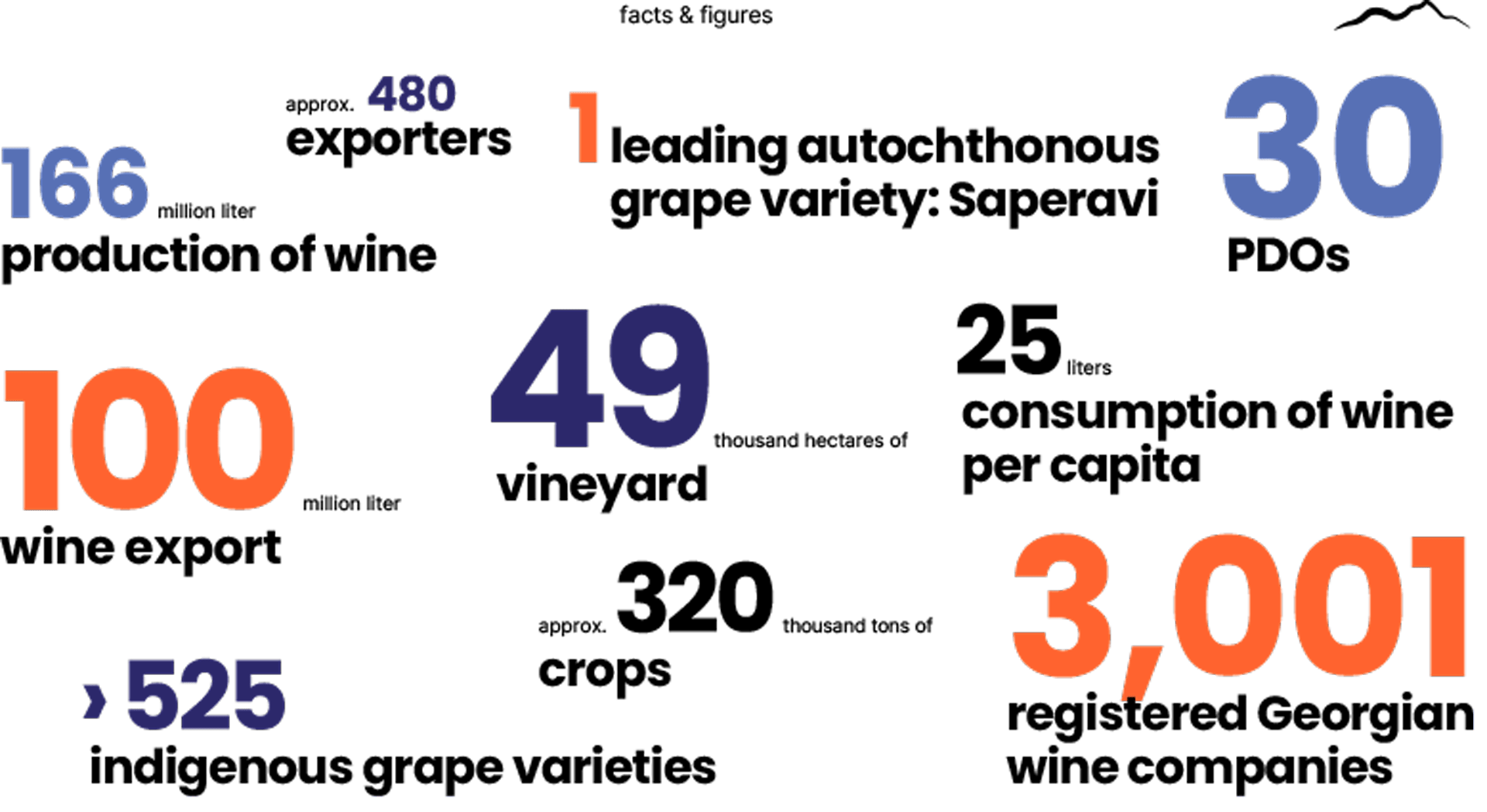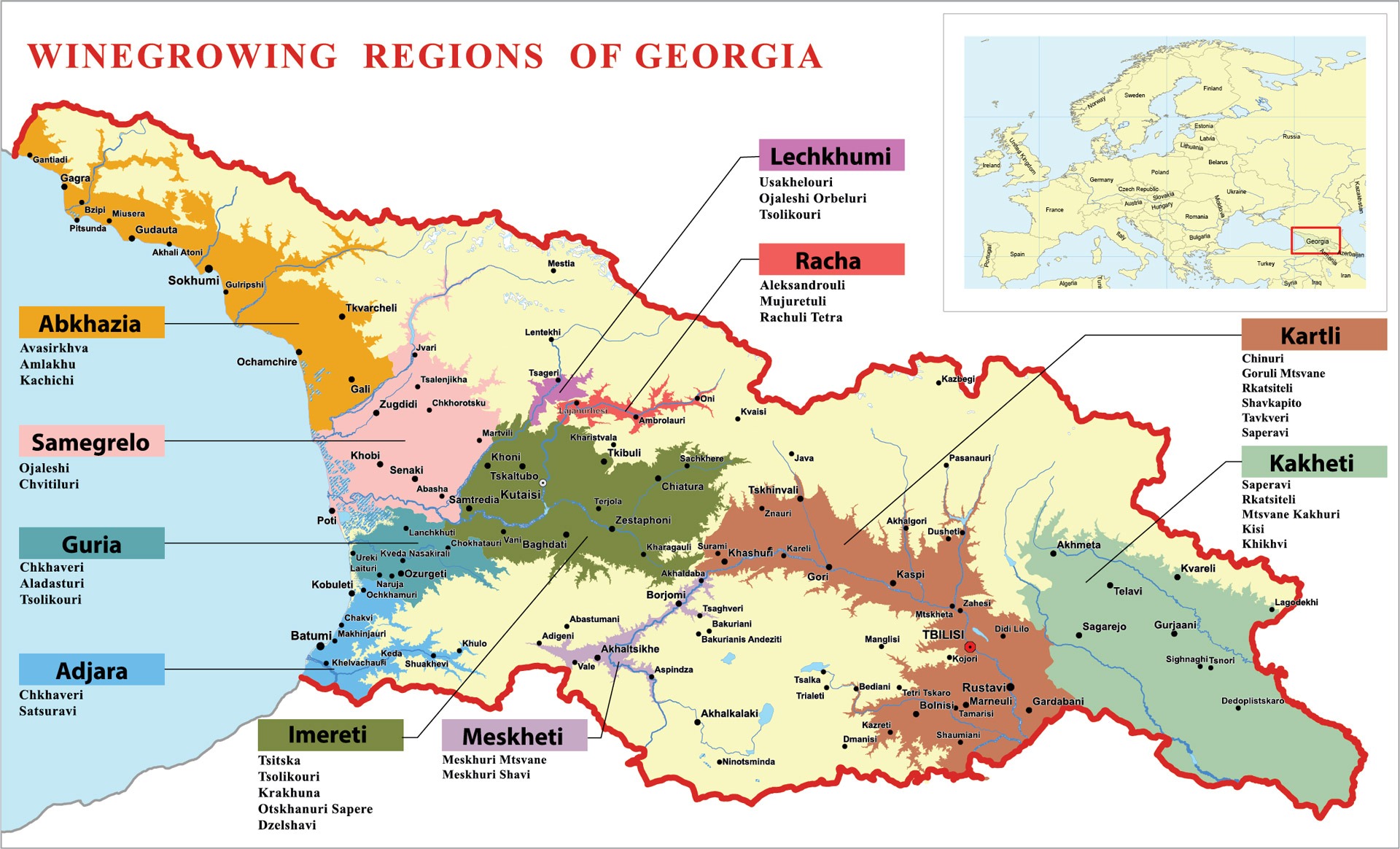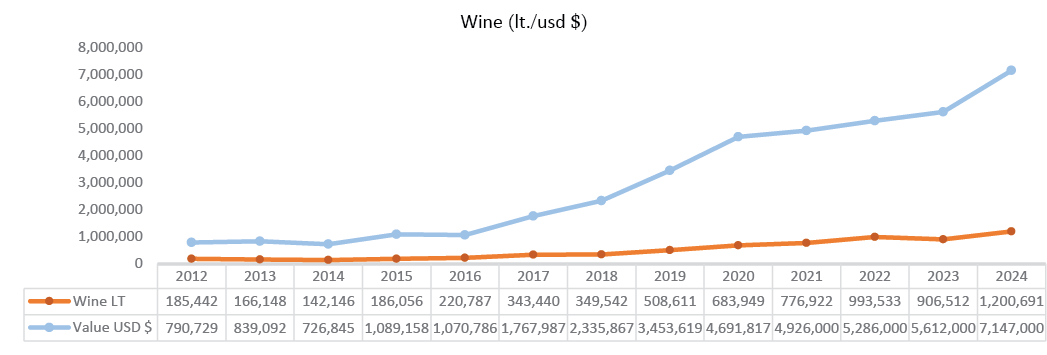Overview
Georgian wines: facts and figures
The country of Georgia sits on the eastern edge of the Black Sea, roughly 1,000 km east of Rome—where Europe and Asia intersect. It borders on Russia, Azerbaijan, Armenia, and Turkey, and has a square mileage slightly smaller than the state of Maine. Georgia stretches between the Greater Caucasus Mountains to the north and the Lesser Caucasus to the south. Its capital is Tbilisi.
100,000+ family wineries nationwide
In 2019, 1,088 Georgian wine companies were registered to sell wine commercially; 350 of these were registered to export. Georgia is an ancient wine region with deep winemaking roots in every family and community. As the country redevelops in the post-Soviet era, the number of family wineries registering for commercial production is increasing dramatically (see table).
As of August 2023, Georgia has 30 defined wine protected designation of origin (PDOs): Learn More About Our Appellations
Statistics

Wine Regions
Apkhazeti • Adjara • Guria • Imereti • Kakheti • Kartli • Meskheti • Racha • Lechkhumi • Samegrelo

Global Exports in 2024
94.7 Million Litres of Wine Exported to 68 Countries
480 Exporting Companies of Georgian Wine

Value of Exported Wine: $276 million U.S. dollars
Exports to the U.S. Market

Terminology
Data provided by Wines Georgia, the U.S. trade/media office of the National Wine Agency of Georgia
The National Wine Agency of Georgia works to preserve the country’s qvevri winemaking tradition, control the quality of all Georgian wines, and promote Georgian wines globally.
